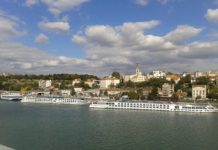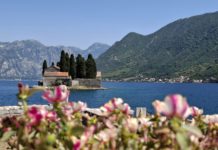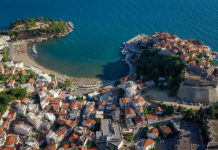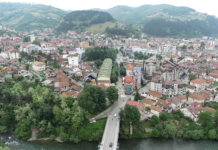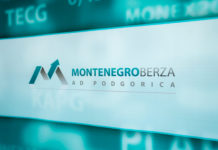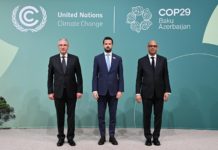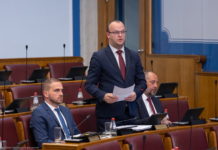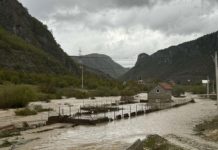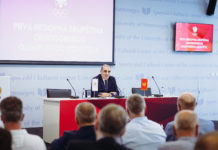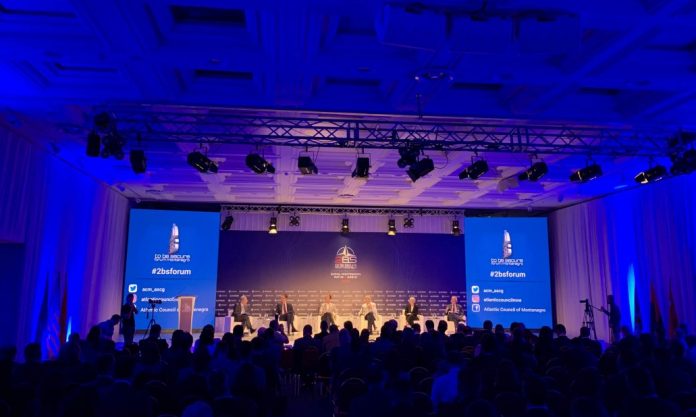Budva, (MINA) – It is of utmost importance that Europe keeps up with the enlargement policy, thus contributing to stability of the continent, said Montenegrin president Milo Djukanovic.
A two-day forum, gathering leaders and top leaders from the region, Europe and the USA, is organized by the Atlantic Council of Montenegro, with its focus on stability, security and future prosperity of the Western Balkans, in the context of the process in Europe and globally.
Speaking at the panel discussion “Steering the helm of Europe amidst high tides and strong winds of change”, Djukanovic said that everything said in the previous forum can be applied today as well.
“We are at the beginning of a new phase where ambitions of former global players are coming to life, and new global actors are also emerging, which must be inspiration for all”, said he.
Djukanovic remarked that, following recently held European Parliament elections, Europe continues living in a state of strategic confusion, caused by the crises, which hinders it to respond to the issue of Europe’s enlargement.
“EP elections ended better than expected. Radical and right-winged currents did not pick on power, and we can note that Europe remains on its political strategic course”, said Djukanovic.
He believes that it is of utmost importance that Europe keeps up with the enlargement policy, since it will contribute to stability of the continent.
Speaking about Euro-Atlantic partnership, he said that policy of full responsibility towards the alliance must be continued.
“The question if we would defend European values or let the Balkans to some third parties has been reflected in the Balkans currently”, Djukanovic said.
According to him, concerning the region, the issues transferred from the time of former Yugoslavia must be resolved.
The Montenegrin president said that Montenegro will continue strengthening partnerships in the region and beyond.
President of Slovenia Borut Pahor stated that the enlargement process will not be the main topic in the new European Commission’s agenda.
He argues that it must become clear to every EU member state that EU’s enlargement to the Western Balkans is a geopolitical issue, which is quite complex.
“Based on my experiences, I would say that it would be better if Brussels would observe the region as a whole, and we need a slightly different attitude of everyone in the region for that”, said Pahor, adding that it is the only possible path.
Defense Minister of Bosnia and Herzegovina Marina Pendes, asked if she was disappointed that the EC recommended opening the talks with Albania and North Macedonia, but not with BiH, responded that she is a bit disappointed, but also optimistic that this country will also soon find a solution.
German Defense Minister Thomas Silberhorn said that speed of progressing towards the EU depends on the countries, and not on the EC.
He added that there was reserve with some EU member states, in regard to enlargement, but that EP elections sent a clear message.
The Atlantic Council’s executive vice-president Damon Wilson said that many practical agreements between Belgrade and Pristina have been achieved, and that there are not too many options and paths to choose.
Speaking about the influence of China and Russia, Wilson said that the USA are very focused on the topic of competition of power, and that more urgent activities must be undertaken.
Longer version of article is available on a link MINA ENGLISH SERVIS

